- Home
- neetha Napew
Humans Page 2
Humans Read online
Page 2
“And you think that’s why I pushed?” Ponter said. “That I didn’t care about the consequences, the ramifications, for this world? That all I was worried about was getting to resolve this unfinished relationship?”
“You tell me,” said Selgan, gently.
“It wasn’t like that. Oh, sure, there’s a superficial resemblance between what happened with me and Klast, and what happened with me and Mare. But I’m a scientist.” He fixed Selgan with an angry stare of his golden eyes. “Arealscientist. I understand when true symmetry exists-it doesn’t here-and I understand false analogy.”
“But youdidpush the High Gray Council. I saw it on my Voyeur, along with thousands of others.”
“Well, yes, but...”
“But what? What were you thinking then? What were you trying to accomplish?”
“Nothing-except what was best for all our people.”
“Are you sure of that?” asked Selgan.
“Of course I’m sure!”snapped Ponter.
Selgan was quiet, letting Ponter listen to his own words echo off the polished wooden wall.
Ponter Boddit had to admit that nothing he’d ever experienced-indeed, probably nothing thatany of his people had ever experienced-had been more frightening than being transported bodily from this world to that bizarre other world, arriving in total darkness and almost drowning in a giant water tank.
But, still, of the things that happened inthis world, this universe, few could compare for sheer terror with addressing the High Gray Council. After all, this wasn’t just the local Gray Council; theHigh Gray Council ran the planet, and its members had come here, to Saldak, specifically to see Ponter and Adikor and the quantum computer they’d used twice now to open a portal to another reality.
No one on the High Gray Council was anything younger than a 143, twenty years Ponter’s senior. The wisdom, the experience, and, yes, when it struck their mood to be so, the sheer cussed orneriness of people that old was formidable in the extreme.
Ponter could have just let the issue drop. Nobody was pushing for him and Adikor to reopen the portal to the other world. Indeed, except maybe for that female group in Evsoy, there was no one who could gainsay them if Ponter and Adikor simply claimed that the opening of the portal had been an irreproducible fluke.
But the possibility of trade between two kinds of humanity was too significant for Ponter to ignore. Information could certainly be swapped: what Ponter’s people knew about superconductivity, say, for what the Gliksins knew about spaceships. But, more than that,cultures could be exchanged: the art of this world for the art of that world, adibalat iterative epic, perhaps, for a play by this Shakespeare he’d heard of over there; sculptures by the great Kaydas for the work of a Gliksin painter.
Surely, thought Ponter, these noble thoughts were his sole motivation. Surely he had nothing personally to gain by reopening the portal. Yes, there was Mare. Still, doubtless Mare wasn’t really interested in a being so different from herself, a creature who was hairy where males of her kind were smooth, who was stocky when most Gliksins were gracile, a being with a double-crested browridge undulating above his eyes, eyes that were golden instead of Mare’s own blue or the dark brown of so many others of her species.
Ponter had no doubt that Mare had really suffered the trauma she’d spoken of, but surely that was only the most prominent of many reasons for her having rebuffed his advance.
But no.
No, that wasn’t right.
Therehad been a real, mutual attraction. Across time lines, across species boundaries, it had been real. He was sure of it.
But could things really go better between the two of them if contact were resumed? He cherished his wonderful, beautiful memories of his time with her-and they wereonly memories, for his Companion implant had been unable to transmit anything to his alibi archive from the other side. Mare existed only in his imagination, in his thoughts and dreams; there was no objective reality to compare her to, except a few brief glimpses caught by the robot that Adikor had dangled through the portal to summon Ponter home.
Surely it was better this way. Further contact would spoil what they’d already had.
And yet-
And yet itdid seem that the portal could be reopened.
Standing in the small anteroom, Ponter looked over at Adikor Huld, his man-mate. Adikor nodded encouragingly. It was time to go into the Council chamber. Ponter picked up the unexpanded Derkers tube he’d brought with him, and the two men walked through the massive doors, ready to face the High Grays.
“The presence here of Scholar Boddit,” said Adikor Huld, gesturing now at Ponter, “is direct proof that a person can pass through to the other universe and return unharmed.”
Ponter looked at the twenty Grays, ten males and ten females, two from each of the world’s ten regional governments. In some forums, males sat on one side of the room and females on the other. But the High Gray Council dealt with matters that affected the entire species, and the males and females who had gathered here from all over the globe alternated in a great circle.
“But,” continued Adikor, “except for Ponter’s daughter Jasmel, who stuck her head through the portal during our rescue operations, no one else from this world has been to that one. When we first created the portal, it was by accident-an unexpected result of our quantum-computing experiments. But we now know that this universe and that one, the one in which Gliksin people dominate, areentangled somehow. The portal from here always opens to that particular one out of the panoply of alternate universes that our physics tells us must exist. And, as far as we can determine from our previous experience, the portal will remain open as long as a solid object is passing through it.”
Bedros, an old male from Evsoy, frowned at Adikor. “So what are you proposing, Scholar Huld? That we shove a stick partway through the portal to keep it open?”
Ponter, standing next to Adikor, turned slightly so that Bedros, at least, would not see his smirk.
Adikor wasn’t as fortunate: he was caught in Bedros’s gaze, and couldn’t look away without seeming disrespectful. “Um, no,” he said. “We have something more, ah, versatile in mind. Dern Kord, an engineer of our acquaintance, has proposed that we insert a Derkers tube through the portal.”
This was Ponter’s cue to unfold the Derkers tube. He got his fingers inside the narrow mouth and pulled. The tube, a latticework of metal, expanded with a ratcheting sound until its diameter was greater than Ponter’s height. “These tubes are used to reinforce mining tunnels in emergencies,” said Ponter. “Once expanded, they resist being collapsed. Indeed, the only way to get one to return to its original size is by using a defastener to undo the locks at each intersection of the crisscrossing metal segments.”
To his credit, Bedros got the idea at once. “And you think one of these will keep the portal open indefinitely, so that people could just walk down it, like a tunnel between the two universes?”
“Exactly,” said Ponter.
“What about disease?” asked Jurat, a local female of generation 141. She was seated on the opposite side of the room from Bedros, so Ponter and Adikor had to turn to face her. “I understand you fell ill when you were in the other world.”
Ponter nodded. “Yes. I met a Gliksin physicist there who...” He paused as one of the High Grays snickered. Ponter had gotten used to the notion, but he understood why it sounded funny; he might as well have referred to “a caveman philosopher.” “Anyway,” continued Ponter, “she proposed that the time lines split-well, she said forty thousand years ago; that’s half a million months. Since then, the Gliksins have lived in crowded conditions, and have bred many animals in large numbers for food. Numerous diseases have likely evolved there to which we have no immunity. And it may be that some diseases have evolved here to which they’re not immune, although our lower population density makes that less likely, I’m told. In any event, we will need to provide a decontamination system, and everyone who travels in either direction between th
e worlds will have to be treated by it.”
“But wait,” said Jindo, another male, who came from the land south of here on the opposite side of the unoccupied equatorial belt. Fortunately, he was sitting right beside Jurat, so Ponter and Adikor didn’t have to turn around again. “This tunnel between worlds has to be located at the bottom of the Debral nickel mine, a thousand armspans beneath the surface, is that right?”
“Yes,” said Ponter. “You see, it’s our quantum computer that makes accessing the other universe possible, and for it to work at all, it has to be shielded from solar radiation. The huge amount of rock overhead provides that shielding.”
Bedros nodded, and Adikor turned to face him. “So it’s not as though people could travel in great numbers between the two worlds.”
“Meaning,” said Jurat, picking up Bedros’s point, “that we don’t have to worry about an invasion.” Adikor turned to face her, but Ponter continued to look at Bedros. “Not only will individuals have to come through this narrow tunnel, but they will have to make it all the way up to the surface before they can get out into our world.”
Ponter nodded. “Exactly. You’ve reached the marrow.”
“I appreciate your enthusiasm for your work,” said Pandaro, the president of the Council, a Galasoyan 140 female, who, to this point, had been silent. She was sitting halfway between Bedros and Jurat, so Ponter turned left and Adikor turned right until they were both facing her. “But let me see if I understand you correctly. There is no way the Gliksins can open a portal to this world, right?”
“That’s right, President,” said Ponter. “Although I certainly didn’t learn everything about their computing technology, they are a long way away from building a quantum computer anything like the one Adikor and I created.”
“How far away are they?” asked Pandaro. “How many months?”
Ponter looked at Adikor briefly; Adikor, after all, was the hardware expert. But Adikor conveyed with an expression that Ponter should go ahead and answer. “At least three hundred, I’d say, and possibly many more.”
Pandaro spread her arms, as if the answer were obvious. “Well, then, there is no rush to deal with this matter. We can take the time to study the issue, and-“
“No!”exclaimed Ponter. Every eye in the chamber fell on him.
“I beg your pardon?” said the president, her tone cool.
“I mean,” said Ponter, “it’s just that-that we don’t know how reproducible this phenomenon is over the long term. Any number of conditions might change, and-“
“I understand your desire to continue your work, Scholar Boddit,” said the president, “but there is the question of disease transfer, of contamination, and-“
“We already have the technology to shield against that,” said Ponter.
“In theory,” said another Councilor, also a female. “But in practice, the Kajak technique has never been used in such a way. We can’t be sure-“
“You are sotimid,” snapped Ponter. Adikor was looking at him with shock, but Ponter ignored his partner.”They would not be so frightened. They’ve climbed their world’s highest mountains! They’ve gone far beneath the oceans! They’ve orbited the Earth! They’ve gone to the moon! It wasn’t the cowardice of old men and women that-“
“Scholar Boddit!”The president’s tone thundered through the Council chamber.
Ponter stopped himself. “I-I’m sorry, President. I didn’t mean-“
“I think it’s abundantly clear what you meant,” said Pandaro. “But our role is to be cautious. We have the welfare of the entire world on our shoulders.”
“I know,” said Ponter, trying to keep his voice calm. “I know, but there’s so much at stake here! We can’t wait for endless months. We have to act now.You have to act now.”
Ponter felt Adikor’s hand land gently on his upper arm. “Ponter...” he said softly.
But Ponter twisted free. “We haven’t gone to the moon. We’ll probably never go to the moon-and that means we’ll never go to Mars, or the stars. This parallel Earth is the only other world our people will ever have access to. We can’t let the opportunity slip away!”
It might be apocryphal, but Mary Vaughan had heard the story so often she suspected it was probably true. They said that when Toronto decided to build a second university in the 1960s, the plans for the campus had been bought from an extant university in the southern U.S. It had seemed like an expedient thing to do, but no one had taken into account the climatic differences.
That used to create problems, at least in winter. The campus had originally had lots of spaces between buildings, but those had been filled in over the years with new construction. Now the campus was cluttered: crowded with glass and steel, with brick and concrete.
Still, therewere things about the campus that appealed to Mary. Most notable was the name of the business school, which she was now passing: “The Schulich School of Business”-and, yes, Schulich was pronounced “shoe lick.”
It was still a week before classes would begin, and the campus was mostly deserted. Although it was broad daylight, Mary still found herself feeling apprehensive as she walked along, going around corners, passing walls, squeezing through passageways.
This was where it had happened, after all. This was where she’d been raped.
Like most North American universities, York actually had more female undergraduates than males these days. Still, with over forty thousand full-time students, there were perhaps twenty thousand males who could have been responsible-assuming that the animal had been a York student.
But no, no, that wasn’t right. York was in Toronto, and a more cosmopolitan city would be hard to find. The man who’d raped her had white skin and blue eyes. A large chunk of York’s population didn’t fit that description.
And he’d been a smoker; Mary vividly remembered the reek of tobacco on his breath. Although it pained her every time she saw a student lighting up-these kids, after all, had been born in the 1980s, two decades after U.S. Surgeon General Luther Terry had announced that smoking was deadly-it was true that a minority of women, and even fewer men, smoked.
So the person who had attacked her wasn’t just anyone; he’d been part of a subset of a subset of a subset: males, with blue eyes and white skin, who smoked.
If Mary could ever find him, she could prove his guilt. There weren’t many occasions when being a geneticist turned out to have practical applications in one’s own life, but ithad come in handy that horrible night. Mary knew how to preserve samples of the man’s semen, which would contain DNA that could conclusively identify him.
Mary continued to walk across the campus. There were no crowds to fight through yet. But, actually, she’d probably feel safer then. After all, the rape had occurred during the summer holidays, when fewer people were around. Crowds meant safety-whether on the African savannah or here in Toronto.
And now, as she walked along, Mary realized a man was coming toward her. Her pulse accelerated, but she stayed her course; she couldn’t spend the rest of her life veering out of the way every time she was getting near a male. Still...
Still, it was a white man-that much was obvious.
His hair was blondish. She’d not seen her assailant’s hair; he’d worn a ski mask. But blue eyes often went with light hair.
Mary closed her eyes for a second, shutting out the bright sunlight, shutting out her world. Maybe sheshould have followed Ponter through the gateway to the Neanderthal universe. Certainly that thought had crossed her mind as she’d run across the Laurentian campus, searching for Ponter, rushing to get him down to the bottom of the Creighton Mine before the reopened portal to his reality slammed shut again. After all, at least there she’d have known for sure that her attacker was nowhere around.
The approaching man was now less than a dozen meters away. He was young-probably a summer student-and wearing blue jeans and a T-shirt.
And he was wearing sunglasses. It was a bright summer’s day; Mary herself was wearing he
r FosterGrants. There was no way to tell what color his eyes were, although they couldn’t be the golden of Ponter’s-she’d never seen any other human with eyes like that.
Mary tensed as the man came closer, and closer still.
Even if he hadn’t been wearing sunglasses, though, Mary wouldn’t have known what color his eyes were. As the man passed by her, she found herself averting her gaze, unable to look at him.
Damn, she thought.God damn.
Chapter Three
“So,” said Jurard Selgan, “despite your...your...”
Ponter shrugged. “My bullying,” he said. “We’re not supposed to be afraid of facing things head on here, are we?”
Selgan tipped his head, accepting Ponter’s assessment. “Very well, then. Despite your bullying, the High Gray Council did not immediately make a decision, did it?”
“No,” said Ponter. “No, and I suppose it was correct in taking at least a little time to think things through. Two were just about to become One, and so the Council adjourned, reserving its decision until after that was over...”
Two becoming One: so simple a phrase, and yet so fraught with meaning and complexity for Ponter and his people.
Two becoming One: the monthly four-day holiday around which all life was structured.
Two becoming One: the period during which adult males, who normally lived at the city’s Rim, came into the Center to spend time with their women-mates and children.
It was more than just a break from work, more than simply a variation in routine. It was the fire that sustained culture; it was the gut ties that bound families.
A hover-bus settled out front of Ponter and Adikor’s house. The two men entered through the door at the back and found a pair of adjacent saddle-seats upon which to sit. The driver activated the fans, and the bus rose above the ground and started moving on to the next house, off in the distance.
Usually, Ponter gave no thought to something as mundane as a hover-bus, but today he couldn’t help pondering how elegant a solution it was compared to what they’d done about transportation in the Gliksin world. There, vehicles of all sizes rolled on wheels. Everywhere he’d gone on the Gliksin world (admittedly only a few places), he’d seen wide, flattened trails covered with artificial stone to make it easy for those wheels to roll.

 Zero City
Zero City Freedom Omnibus
Freedom Omnibus ACrucible of Time
ACrucible of Time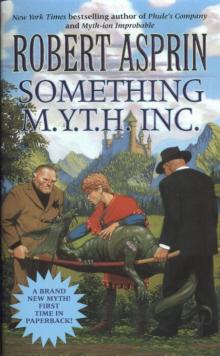 Something MYTH Inc
Something MYTH Inc Forbidden Land
Forbidden Land Corridor of Storms
Corridor of Storms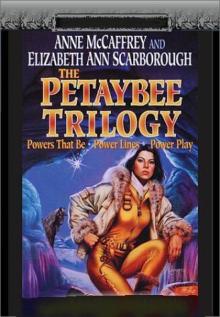 The Peytabee Omnibus
The Peytabee Omnibus Beyond the Sea of Ice
Beyond the Sea of Ice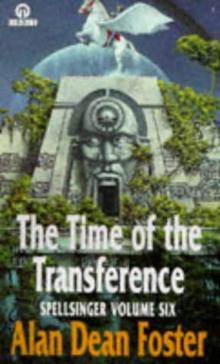 The Time Of The Transferance
The Time Of The Transferance EarthBlood
EarthBlood The Lexal Affair
The Lexal Affair The Web
The Web Slave Ship
Slave Ship Eternity Row
Eternity Row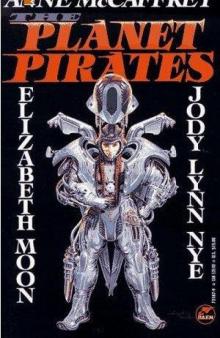 Planet Pirates Omnibus
Planet Pirates Omnibus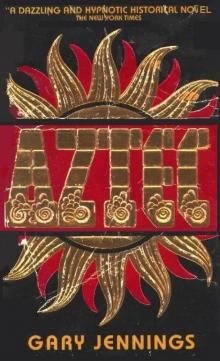 Aztec
Aztec The Awakening
The Awakening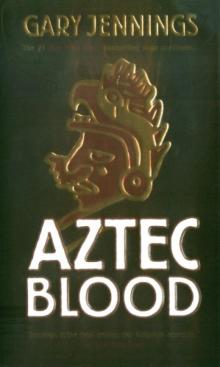 Aztec Blood
Aztec Blood The Mystery of Ireta Omnibus
The Mystery of Ireta Omnibus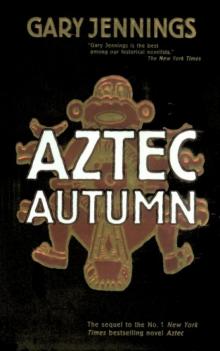 Aztec Autumn
Aztec Autumn The Savage Horde
The Savage Horde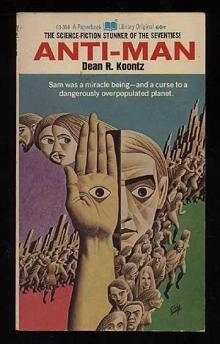 Anti - Man
Anti - Man Deep Trek
Deep Trek Starfall
Starfall The Paths Of The Perambulator
The Paths Of The Perambulator Fool's Fate
Fool's Fate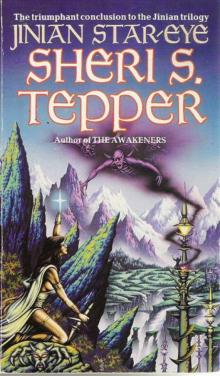 Jinian Stareye
Jinian Stareye Endurance
Endurance Spellsinger
Spellsinger Hybrids
Hybrids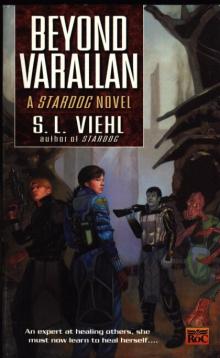 Beyond Varallan
Beyond Varallan Doona Trilogy Omnibus
Doona Trilogy Omnibus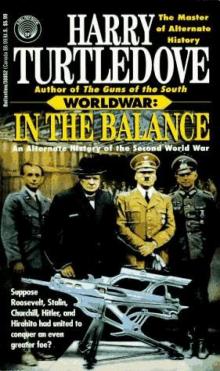 In th Balance
In th Balance Planerbound
Planerbound The Nightmare begins
The Nightmare begins Humans
Humans Son Of Spellsinger
Son Of Spellsinger